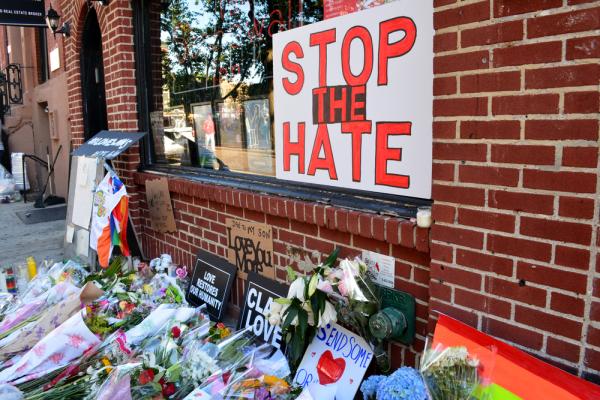Jun 14, 2016
But while we cry, we must also gain our composure and not allow hate or cynicism to have the first, the loudest, or the last word.
We cannot use hate as the path through our pain into our tomorrow. Hate fuels hate: racial hate, homophobic hate, religious hate, class hate, and the rhetoric of hate that drives the terrorist and the mob. The culture of hate creates the actions of hate. It is and always has been a recipe for murder.
Read the Full Article

Already a subscriber? Login
